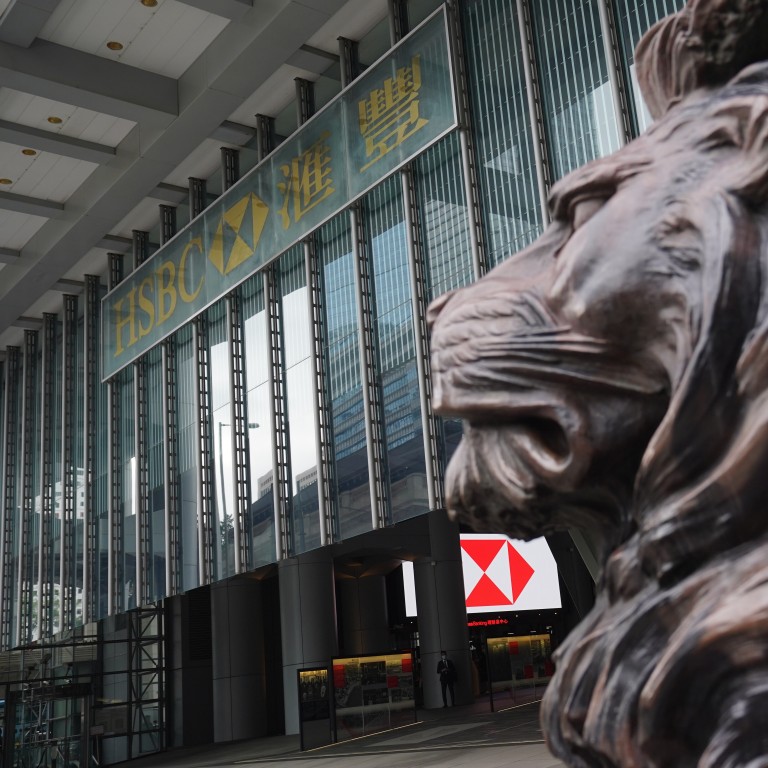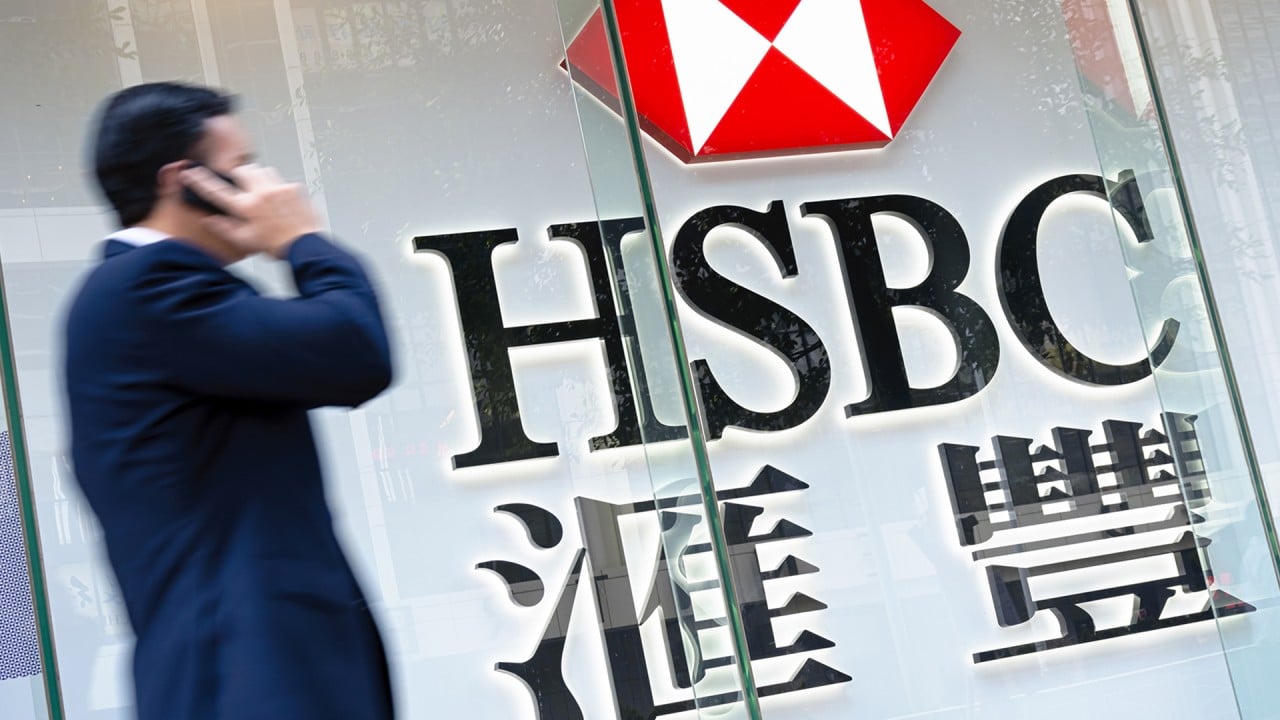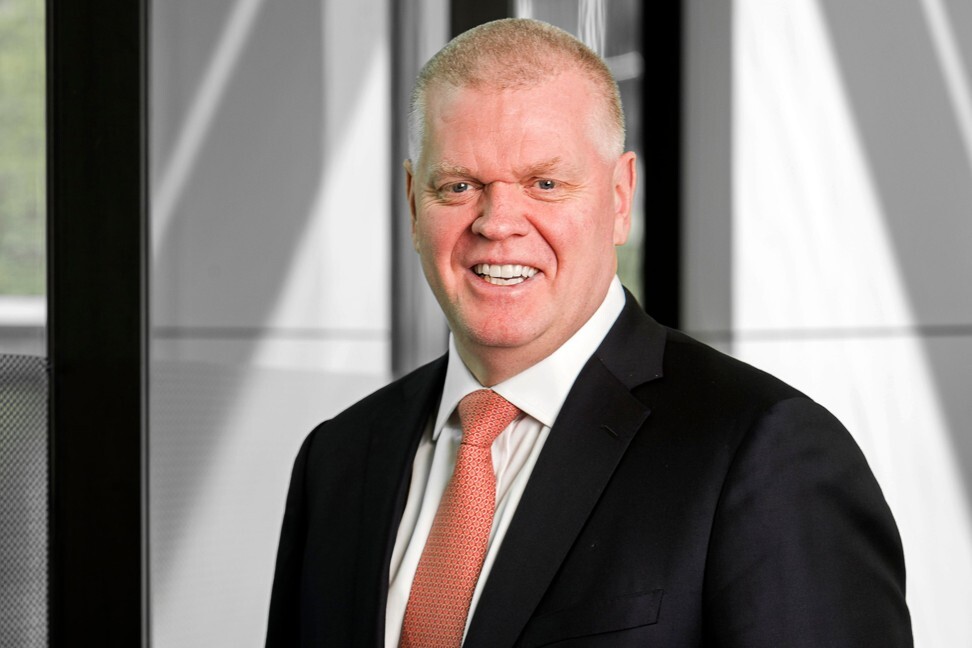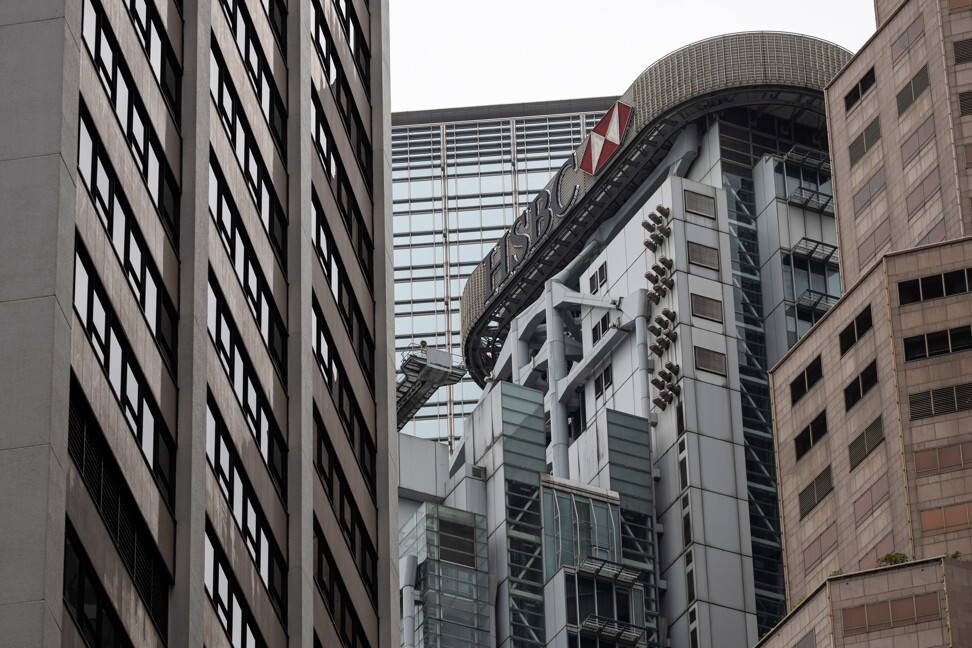
HSBC plans to buy back up to US$2 billion in shares, beats estimates with higher pre-tax profit
- Hong Kong’s biggest currency-issuing bank said it remains ‘comfortable’ with its exposure to China Evergrande Group and other mainland developers
- Pre-tax profit was US$5.4 billion, beating a consensus estimate of US$3.78 billion
CEO Noel Quinn said the lender remains “comfortable” with its exposure to the real estate sector in China, even as Evergrande, the mainland’s largest home builder by sales, missed several interest payments on its offshore debt in September and October and other developers have defaulted on their debt recently.
Quinn said HSBC, which is based in London, but generates much of its revenue in Asia, typically finances properties in tier 1 cities in China, with good overall security on the loans. The bank’s total exposure to the real estate sector in the mainland is less than US$20 billion.
“Clearly, the sector is going through adjustment and there are risks of that adjustment, but we think they’re manageable, particularly from a HSBC perspective,” Quinn said in a conference call with journalists.

04:41
HSBC doubles down on Asia in massive staffing overhaul
In the third quarter, the lender’s pre-tax profit was US$5.4 billion, beating a consensus estimate of US$3.78 billion by analysts compiled by the bank, and an improvement over the US$3.07 billion it reported a year earlier. On a net basis, HSBC earned a profit of US$3.54 billion in the third quarter, compared with a profit of US$1.36 billion a year ago.
HSBC said that it released US$659 million of reserves for potential bad loans in the third quarter, compared with a US$785 million charge for so-called expected credit losses in the prior-year period.
The bank said it expects to post a net release of reserves for expected credit losses for full-year 2021, with a potential “further small net release” in the fourth quarter. The bank recorded provisions for potential soured loans of US$8.8 billion in 2020, the low end of its projected range for the year.

Shares of HSBC rose 0.4 per cent to close at HK$46.70 in Hong Kong on Monday.
HSBC’s management is sounding more constructive on its revenue outlook for financial year 2022 driven by loan growth, net interest margin stabilisation and fee growth, according to Citigroup analyst Yafei Tian.
“The buy-back should be welcomed by the market,” Tian said in a research report.
Revenue at HSBC increased 1 per cent to US$12.01 billion in the third quarter, while net interest income rose 2.5 per cent to US$6.61 billion.
Net interest margin, an important measure of profitability, slipped 1 basis point to 1.19 per cent, compared with 1.2 per cent in last year’s third quarter. It was 1.2 per cent in the second quarter.
Pre-tax profit declined 6.8 per cent to US$1.77 billion in the third quarter in Hong Kong, its biggest market. Overall, pre-tax profit in its Asian business increased 3.4 per cent to US$3.3 billion in the quarter.

In HSBC’s global banking and markets segment, pre-tax profit rose 28 per cent to US$1.28 billion in the third quarter. Pre-tax profit in the bank’s wealth and personal banking segment jumped 54 per cent to US$1.86 billion.
The commercial bank reported a pre-tax profit of US$1.94 billion in the third quarter, compared with a profit before tax of US$1.21 billion a year earlier.
“We’re looking at bolt-on acquisitions of a similar nature to AXA,” Quinn said.

